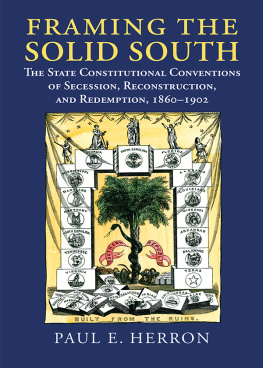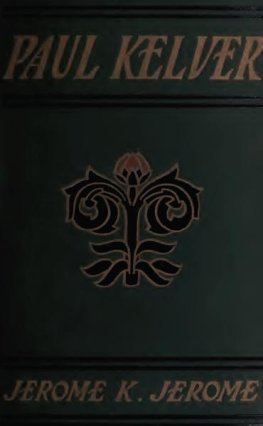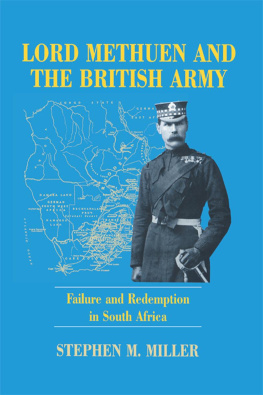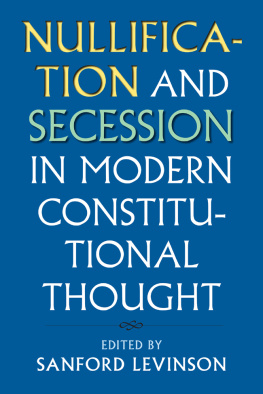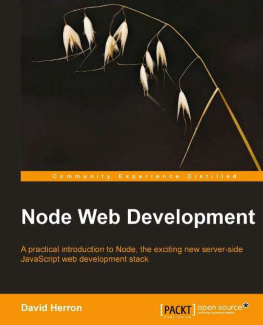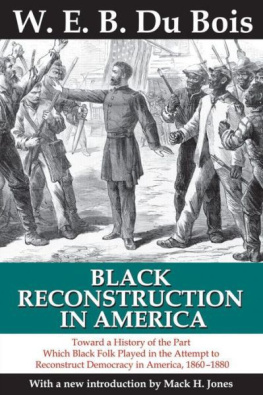2017 by the University Press of Kansas
All rights reserved
Published by the University Press of Kansas (Lawrence, Kansas 66045 ), which was organized by the Kansas Board of Regents and is operated and funded by Emporia State University, Fort Hays State University, Kansas State University, Pittsburg State University, the University of Kansas, and Wichita State University
Library of Congress Cataloging-in-Publication Data
Names: Herron, Paul E., author.
Title: Framing the solid south : the state constitutional conventions of secession, reconstruction, and redemption, 18601902 / Paul E. Herron.
Description: Lawrence : University Press of Kansas, 2017. | Includes bibliographical references and index.
Identifiers: LCCN 2016051177
ISBN 9780700624362 (hardback)
ISBN 9780700624379 (paperback)
ISBN 9780700624386 (ebook)
Subjects: LCSH: Constitutional conventionsUnited StatesStatesHistory. | Constitutional conventionsSouthern StatesHistory. | Constitutional historySouthern States. | SecessionSouthern StatesHistory. | Reconstruction (U.S. history, 18651877) | Southern StatesRace relationsPolitical aspectsHistory. | Southern StatesPolitics and government17751865. | Southern StatesPolitics and government18651950. | BISAC: POLITICAL SCIENCE / Government / State & Provincial. | HISTORY / United States / 19th Century.
Classification: LCC KF4530 .H47 2017 | DDC 342.75502/9209034dc23
LC record available at https://lccn.loc.gov/2016051177.
British Library Cataloguing-in-Publication Data is available.
Printed in the United States of America
10987654321
The paper used in this publication is recycled and contains 30 percent postconsumer waste. It is acid free and meets the minimum requirements of the American National Standard for Permanence of Paper for Printed Library Materials Z 39.48-1992 .
Acknowledgments
I always joke that I lead a charmed life. As I sit here reflecting on all the support I have received over the last few years, it seems to me that it might actually be true. I am certainly lucky to have found a research topic that combines my love of history, law, and southern politics. Reading the convention debates somehow never got old, even through thousands of pages. It seemed like I discovered something new and interesting whenever I opened one of those old volumes. At times, the end was far from sight, but every step in the journey was a pleasure because of the wonderful companions who guided me along the way. My family, teachers, colleagues, students, and friends are the reason for my success and happiness with this project and in my life. I simply cannot thank you all enough.
It is a great blessing that my winding and sometimes broken path to academia led to Brandeis University, because it was there that I met Dan Kryder. Dan helped shape my intellectual pursuits and invited me into the community of American political development scholars. He is a brilliant thinker and writer, but he is also a kind and considerate person. A fellow son of the South, Dan has an amazing understanding of southern politics and history, which has been to my great scholarly benefit. He also shares my passions for great barbecue and classic country music. This book simply would not have been possible without Dan, my mentor and my friend. Bernie Yack was also an enthusiastic supporter of mine from the moment I arrived at Brandeis. I especially want to thank Bernie for reminding me that I didnt have to explain all of American constitutionalism with this one project. I guess it took encouragement by a political theorist from Canada for me to finally realize I could write a book about the South.
Ken Kersch and Richard Bensel were both integral at every stage. Ken is one of the most generous scholars I have ever known. He has been a willing and eager resource since my first year of graduate school, and I can consistently rely on Ken for support and advice. My thinking was much improved by our many conversations where Ken always offered useful insights on questions big and small. Richard Bensel has also been a source of support and inspiration for many years. Richard is the kind of professor we should all aspire to be. His work is brilliant, and he is an energetic and committed member of the academy who is always willing to engage with young scholars. Richard provided comprehensive feedback on every chapter, and he did so with alacrity. I am so thankful for his help. Ken and Richard both challenged me on many of my assumptions, which made this a much better book.
I also owe an enormous debt to Amy Bridges. She has been one of my most influential collaborators, and I count her among my very closest friends. Amy recently wrote an outstanding book on state constitutional development in the American West called Democratic Beginnings . I was honored to read drafts and discuss the subject with her. Amy has a great depth of wisdom, and the first chapter of her book should be assigned reading in any class on American constitutional development. She not only provided comments and line edits on much of my book but also spent hours on the phone with me talking about state constitutions and American political development. One of the most delightful results of finding this topic and writing this book is that I got to meet and know Amy Bridges. I value her advice about academics, teaching, and life, and I cherish our friendship.
There are not many of us out there working on state constitutions, but it is an outstanding group. John Dinans work and insights has been essential to my thinking about state constitutionalism and American political development. John read and commented on several chapters, and he was always eager to meet and talk when we ended up in the same place. John is a great scholar and a terrific person. Alan Tarr also helped me at several stages of this project and even invited me to a symposium he organized on state convention debates of the early nineteenth century. It has been a pleasure getting to know Alan, and I think everyone who studies this subject owes him a debt of gratitude for his many years of outstanding scholarship. Thank you, Alan. I was glad when Sandy Levinson turned his attention to state constitutions because he has drawn the study to American constitutionalism and American political development. I have appreciated our interactions over the years as well. Emily Zackin provided valuable feedback on the book; more importantly, her work has changed a lot of minds about state constitutions. And Sean Beienburg, who is now writing a superb book (or maybe two) on constitutional resistance in the states, has been one of my most valuable allies. He is extremely bright, and it has been a privilege to read his work and get his reactions to mine.
Several other scholars deserve special mention. Shep Melnick has been a trusted teacher and mentorthank goodness Boston College is just down the road from Brandeis. Mark Graber invited me to join an American constitutional development graduate seminar he taught at Harvard, and he encouraged me to participate in my first conference. Mark always provides useful feedback on my work, and he has been a helpful advocate. I was very lucky to get to know Paul Nolette while in graduate school. Paul has been a crucial resource on this project and in all of the challenges of academia. He is also a good friend. It is always an honor when people jokingly refer to us as the Pauls because of our similar intellectual pursuits and past lives as lawyers. Dave Robertson urged me to participate in the Policy History Conference when we first met several years ago, and I am forever grateful. Since then, I can always count on Dave for feedback and encouragement. His scholarship sets a high standard for all of us who work on American political development. Rick Valelly was gracious enough to read my prospectus and offer some very helpful comments. His work on Reconstruction is unmatched, and he is as kind as he is smart. I cant say enough about Rob Mickey. He read multiple chapters and met with me on several occasions to offer his insight into southern politics and American political development. The book is much better as a result of those meetings. I always appreciated John Louiss encouragement, along with boundless optimism and love for politics and history. And Ted Miller, who is a great southern historian and a great friend, changed my thinking for the better on more than one occasion. Our conversations meant a lot to me.


